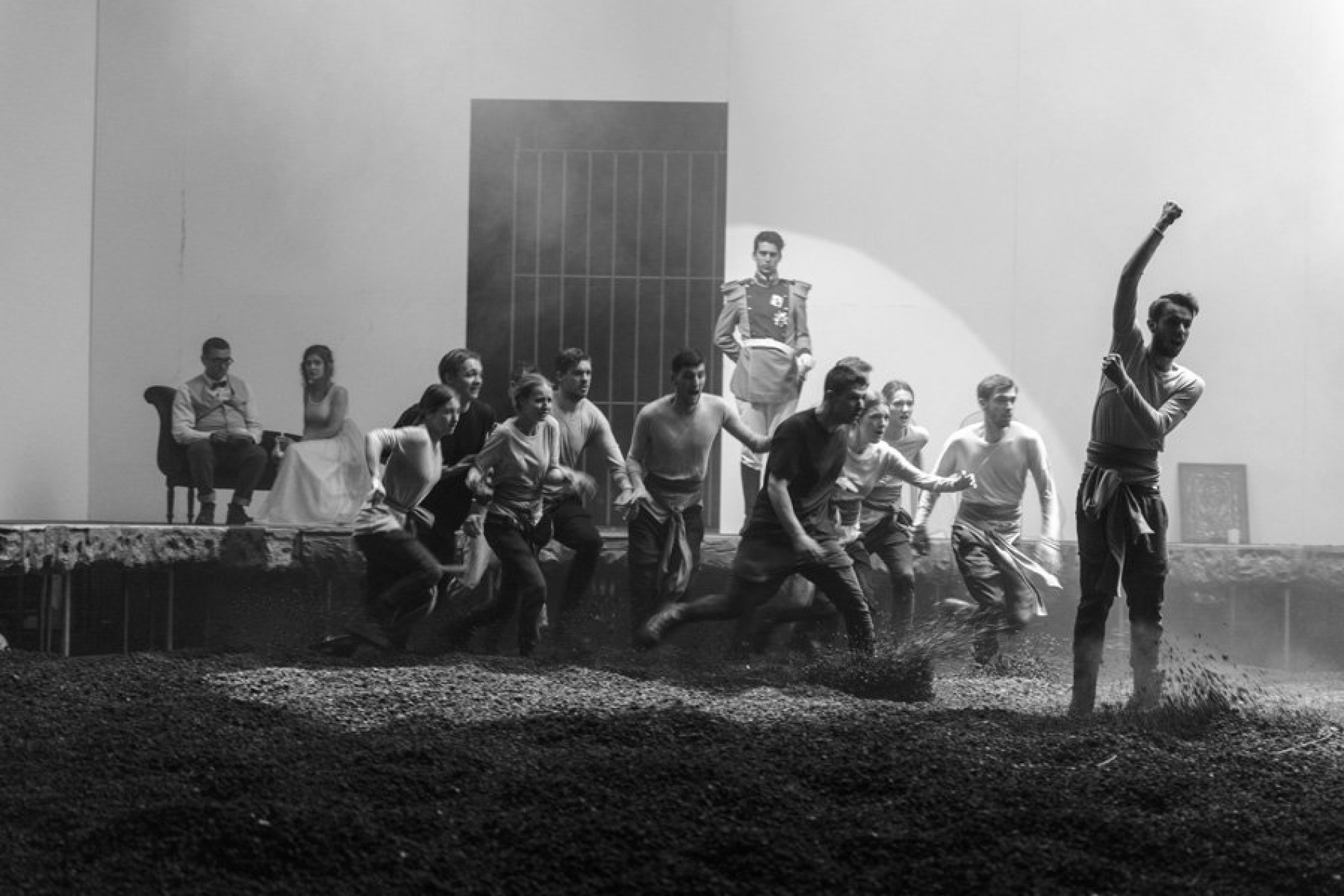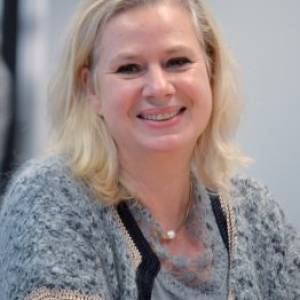
Barbara Gessler
Head of Unit Creative Europe, Directorate General for Education and Culture, European Commission
Born in Belgium with German nationality, Barbara Gessler lived and studied in Konstanz, Paris, Buenos Aires and Bruges. She joined the European Commission in 1994. From mid- 2011 until 2016, she ran the Culture Unit at EACEA, which implements the EU’s funding programmes in these areas. Since 2017 she is responsible for the culture sub-programme at Directorate General Education, Youth, Sport and Culture. Since 2017, she is Head of the Unit Creative Europe, the European Commission’s framework programme for support to the culture and audiovisual sectors.
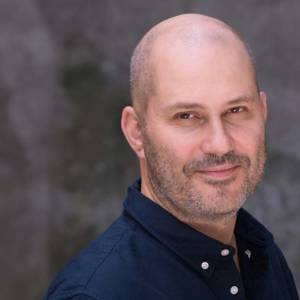
Erik Ulfsby
Artistic Director of Det Norske Teatret Oslo/Norway
Erik Ulfsby has been artistic director of Det Norske Teatret since 2010. The theatre is one of Norway’s two national theatres and a pioneer in the Nordic theatre world. Ulfsby trained as an actor but has received particular recognition as a stage director and theatre manager. He is a sought-after director of both musicals and modern classics. Ulfsby has won numerous awards for his work, and he has received the Norwegian Komiprisen comedy award five times as a director. His productions of The Jungle Bookand Bollywood Ibsen were both awarded the Hedda prize, Norway’s most prestigious theatre award. As artistic director of Det Norske Teatret, Erik Ulfsby has breathed new life into the theatre. He has increased the volume of productions considerably, reorganised the theatre for repertory and overseen a rise in audience numbers. In 2012 he also established Det Multi Norske – an education programme designed to train actors from different ethnic backgrounds in a bid to acknowledge the new Norway and reflect a more diverse contemporary society.
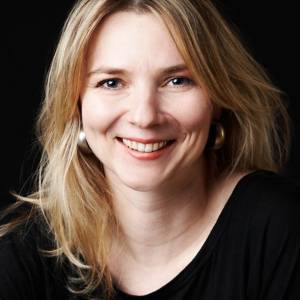
Heidi Wiley
Executive Director of European Theatre Convention, Berlin/Germany
Heidi Wiley is the Executive Director of the European Theatre Convention since 2009, Europe’s network of public theatres. Prior to that she produced and managed international theatre companies and artists incl. the Tiger Lillies and Victoria Thierree Chaplin. She co-produced performances at major European and Asian festivals and venues such as Hongkong International Arts Festival, International Singapore Arts Festival, Edinburgh Fringe Festival, Théâtre de la Ville in Paris, Abbey Theatre in Dublin to name a few. As cultural manager; she worked for European cultural networks and programmes Erasmus and European Film Promotion and collaborated with education and scientific institutions as consultant for international cooperation projects (Fraunhofer Gesellschaft, DAAD). A studied cultural scientist, she holds degrees from La Sorbonne and University of Lüneburg. Heidi lived and worked over the last 20 years in Edinburgh, the USA, Paris and Berlin.
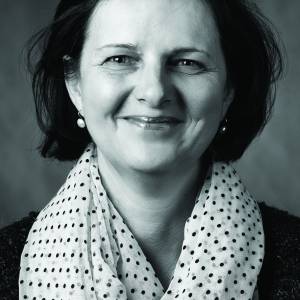
Iveta Škripková
Slovak Theatre Director, Dramaturgist and Author, Bratislava/Slovakia
Graduated from the Academy of Performing Arts in Bratislava in film and television dramaturgy and script writing (1985) and from the Faculty of Arts of Constantine the Philosopher University in Nitra where she majored in aesthetics (2016). In 1985, she started working for the Puppet Theatre on the Crossroads in Banská Bystrica as a dramaturg, and in 1992 she became the theatre’s director. In 1993 and 1999, she spent two study stays in theatres in Marseille and Paris (France) and in 2002 a residential scholarship programme ArtsLink Residencies in the Center for Puppetry Arts in Atlanta (USA). As a dramaturg, script writer and director, she has produced dramatic and literary work for children and adults – mostly in her local Puppet Theatre on the Crossroads where she created numerous adaptations as well as original plays (many of them in collaboration with her husband, director Marián Pecko). She has been shortlisted for several Slovak and international drama awards (Drama, Alfréd Radok Award, Golden Theatre Frog). The winning plays were published in Slovak collections and journals, or produced on home stages. Her play Fetishists was produced in 2008 by the Slovak National Theatre and directed by Soňa Ferancová. In 2013, Škripková published – in collaboration with the Theatre Institute in Bratislava – a theatre-educational title Theatre play-pha-bet about creative dramatic writing with children. In cooperation with University of Constantine the Philosopher in Nitra she published Contexts of Devised Puppet Theatre (Male and Female Search in the Banská Bystrica Theatre). She has initiated various interactive projects with schools and school institutions – she has introduced the Toddlerarium project offering interactive performances for toddlers and their parents. Since 2002, she has focused on the female experience from the gender point of view – this led to the creation of several projects, texts and productions and, in 2007, to the establishment of TWIGA (Theater Women Improvisation Gender Action). In 2011, she joined the European creative writing project called Platform 11+ and dedicated to the development of teenage creativity. At present, Iveta Škripková is the director of the Puppet Theatre on the Crossroads in Banská Bystrica as well as the director of the prestigious International Theatre Festival Puppet Bystrica. She has also contributed to the establishment and running of several remarkable theatre and educational projects.
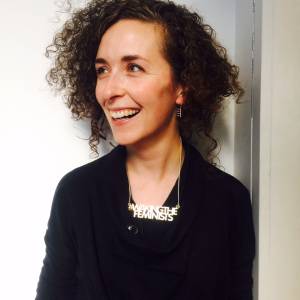
Lian Bell
Project Manager, Campaign Director of #WakingTheFeminists, Dublin/Ireland
Lian Bell works as a set designer, cultural project manager, and artistic collaborator with some of the most significant arts organisations and contemporary performance makers in Ireland. As a designer, she has worked with contemporary theatre, performance and dance artists since completing an MA in Scenography in Central St. Martins, London. As a project manager, she works on festivals, artist development programmes and one-off events. Lian was Campaign Director of #WakingTheFeminists, a one-year grassroots campaign for equality for women in Irish theatre that has changed the theatre community and gained national and international recognition.
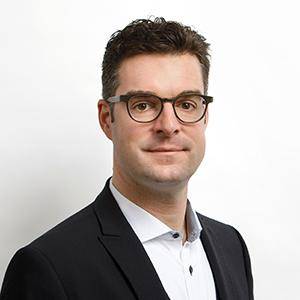
Marc Grandmontagne
Director and CEO, Deutscher Bühnenverein/Germany
“Theatres make a significant contribution to our diverse society. We are only able to exploit this potential to its maximum if culture, economy, politics and science work together.”
Marc Grandmontagne (*1976) studied Law and Political sciences in Saarbrucken, Tubingen and Sienna (Italy). Following his work as parliamentary assistant to Jürgen Schröder (MEP) in 2006 in Brussels, he became Head of the Director’s Office at RUHR.2010 – European Capital of Culture, and then Programme Manager for the Foundation Mercator in Essen (Germany). Between 2013 and 2016 he was Director of the Kulturpolitische Gesellschaft e.V. in Bonn (Germany). He managed the association’s activities and was involved in the cultural development planning as well as further projects of the Institut für Kulturpolitik. Marc Grandmontagne has been Executive Director of the Deutscher Bühnenverein (“Germany’s Theatre Association”) since 2017. Grandmontagne is a member in the Advisory Committee on the Diversity of Cultural Expressions of the German Commission for UNESCO. As of 2017 he is speaker in the Council for Performing Arts and Dance in the German Cultural Council. Furthermore, he is member of PEARLE*’s Executive Committee, of the German Academy for Performing Arts, of the German Orchestra Foundation’s Advisory Committee, of the Frauenkulturbüros NRW as well as the Stiftung Tanz – Transition’s Board of Trustees.
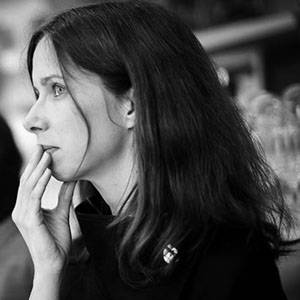
Marie Le Sourd
Secretary General, On The Move/Belgium
Since 2012, Marie Le Sourd is the Secretary General of On The Move, the cultural mobility information network active in Europe and worldwide. Prior to this position, Marie Le Sourd worked in Singapore for the Asia-Europe Foundation (Cultural Department) from 1999 to 2006 and directed the French Cultural Centre in Yogyakarta-Indonesia from 2006 to 2011. Marie Le Sourd has over the years nurtured a knowledge pool on international cultural cooperation, funding schemes for the mobility of artists and cultural professionals, networks and web-resources. She is overall interested in the multiple impacts of mobility on artists and cultural professionals and evaluation process linked to these.
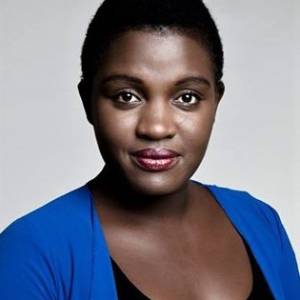
Mercy Dorcas Otieno
Actress, Schauspielhaus Bochum/Germany
"Allowing diversity into our lives is how we find out all the brilliant ideas out there in the world. It is how we learn more about the world around us. By exploring other ideas, beliefs, and lifestyles with an open mind, we open ourselves to exercise creativity and problem solving by looking at things from other lenses. If we only take one perspective about events in the world, we will never understand the other perspectives behind them and therefore lock ourselves into a sort of closed-minded ideology that has only led to hate, prejudice, and tragedy throughout history. When i walk on the streets ist so diverse like never before. Acceptance starts with me…"
Mercy Dorcas Otiena was born in 1987 in Nairobi (Kenya). After working as an au-pair in Germany and Austria in 2006 and 2007, she studied Sociology at Karl Franzens University in Graz in 2009. Between 2013 and 2017 she studied Performing Arts at Max Rein Hardt Seminar in Vienna. She then worked with Anna Badora and Iris Laufenberg during the 2017/2018 season at Schauspielhaus Graz and with directors like Lilly Sykes, Volker Hesse, Dominik Friedel or Nina Gühlstorff. She joined Johann Simons’ ensemble at Schauspielhaus Bochum for the 2018/2019 season.
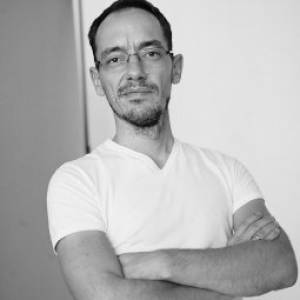
Michal Vajdička
Director of SND Drama, Bratislava/Slovakia
Michal Vajdička has been working since 1993 as a lighting and professional lighting designer at the Drama Theater in Bratislava and at the Bratislava Dance Theater. In 2004, he graduated from the Theatre Direction in Petra Mikulík at the Academy of Performing Arts in Bratislava. Already during his studies, his West Opponent production was successful at the International Meeting of Theatre Schools Meeting in Brno in 2005 and in the same year at the domestic theatre festival Istropolitana in Bratislava. As a director he cooperated with several Slovak and Czech theatres (Drama Theatre, Košice State Theatre, Andreja Bagara Theatre in Nitra, Dejvická Theatre in Prague, Theatre in Vinohrady in Prague, National Theatre Brno). In 2014, he becomes the artistic director of the Dejvicke Theatre in Prague, where he has prepared a successful production of the Ucpanej System, which won the Alfred Radok Award for Best Performance in 2012. He acts as an internal pedagogue at the Academy of Performing Arts where he conducts workshops with Ľuboš Kostelny creation. He is also a television director, working on dramatic and comedy serials and famous reality shows. Since 2018, Michal Vajdička is Director of Drama at Slovak National Theatre.
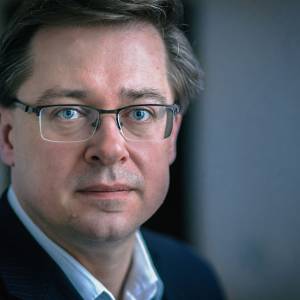
Michal Vašečka
Slovak Sociologist, Bratislava/Slovakia
Sociologist by background and focuses his interests on issues of ethnicity, race, and migration studies. He is a director of Bratislava Policy Institute and also head of media studies department at the Paneuropean University in Bratislava. He operated at the Faculty of Social Studies of Masaryk University in Brno in 2002-2018 and at the Faculty of Social and Economic Sciences of the Comenius University in 2006-2009. As a visiting scholar he operated at the New School University in New York (1996-1997) and at the University of London (1998), in 2008-2009 he lectured at the Georgetown University in Washington, DC, in 2015 at the University of Michigan in Ann Arbor, in 2016 he was a scholar-in-residence in the ISGAP at Oxford University. Michal Vašečka is a founder of the Center for the Research of Ethnicity and Culture, he served a director of the CVEK (2006-2012). In 1998-2005 he operated at the Slovak think-tank Institute of Public Affairs as a program director on expert analysis of the Slovak transformation process with a focus on national minorities and the state of civil society in Slovakia. He has been a consultant for the World Bank in 2000-2008 and in 2011-2012. Since 2012 Michal Vašečka serves as a representative of the Slovak republic in the European Commission against Racism and Intolerance (ECRI), human rights body of the Council of Europe. He is also as a vice-chairman of the governmental committee VRAX tackling extremism and racism in Slovakia. Michal Vašečka serves as a non-resident research associate at the European Centre for Minority Issues in Flensburg.
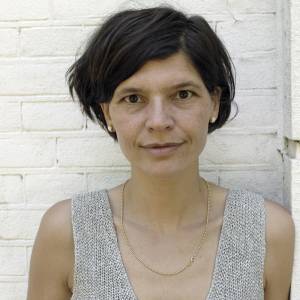
Paulien Geerlings
Dramaturge at De Toneelmakerij, Amsterdam/The Netherlands
Paulien Geerlings is a dramaturge and theatre maker at De Toneelmakerij, Amsterdam (The Netherlands). She studied Philosophy and Theatre studies at the University of Amsterdam. Since her graduation in 1997, she has been working as a freelance dramaturge with several young theatre directors, including Ola Mafaalani, the South-African Bratt Bailey and Marcus Azzini. In 2006, she became dramaturge of Ad de Bont, playwright and artistic director of youth theatre company Wederzijds. This company merged with Huis aan de Amstel in 2009 and became De Toneelmakerij, largest theatre company for young audiences in the Netherlands. Paulien Geerlings is also a teacher at the Directing School of Amsterdam.
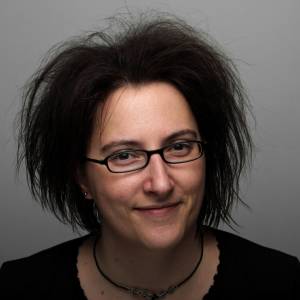
Sarah Sepulchre
Professor, Université catholique de Louvain/Belgium
"As several sources demonstrate it (the Geena Davis Institute, the Société des auteurs et des compositeurs, several academic researches), women are under-represented and stereotyped in culture, mostly popular culture. If we examine the situation for TV series, it seems that changes occur but too slowly. It appeared lately, thanks to several research, that the audiences are more and more searching for shows that represent them in their diversity, especially the younger. Diversity might become a necessity in a close future. Research on management also showed that a real change in the product can only happens if the team that produce it diverse. Improving the diversity (gender, race, age...) among writers, producers, directors, actors is the only way to ameliorate the representations, and to make money."
Sarah Sepulchre is professor at the Université catholique de Louvain (Belgium) where she mainly teaches cultural studies, media analysis and gender studies. Her main research field is television studies. She develops studies on characters in a narratological and gender perspectives, on reception (the way users read TV series and transmedia. She has edited the book Décoder les séries télévisées [English: Decode TV series] (de Boeck, 2017).
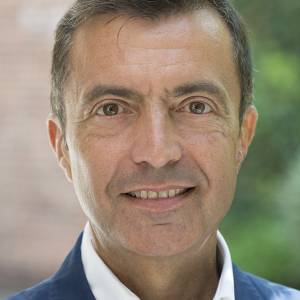
Serge Rangoni
President of ETC & General Manager of Théâtre de Liège/Belgium
Serge Rangoni studied at the Conservatoire of Brussels. After working in various theatre institutions and at the Ministry of Culture, he was designated in 2004 as General Manager of Théâtre de Liège. Under his leadership, the theatre received the titles of “European center of theatrical creation and choreography” and “Centres for Drama” in the French-speaking area of Belgium, affirming its role in theatrical and dance productions and their dissemination to local and international audiences. Since his arrival at its head, the Institution has developed considerably, with now an audience of 65,000 and more than 180 performances a season. Théâtre de Liège is today the leading stage in Wallonia.

Wojtek Ziemilski
Fast Forward Winner 2017, Theatre Director, Visual Artist
Wojtek Ziemilski is a theatre director and visual artist. He graduated from the theatre directing course at the Gulbenkian Foundation in Lisbon, Portugal. Although he has only recently started to work for repertory theatre, his works have already been shown at events such as the Ruhrtriennale, the Prague Quadriennial, the Divine Comedy Festival. One of his most recent shows - One Gesture - won the main award at the Zürich Theater Spektakel festival and the Fast Forward award in Dresden, as well as the Press Award at the MESS Festival in Zagreb. Ziemilski extends the idea of documentary performance. His work is often an inquiry into spectatorship and the possibility for action. By using tools such as devising, real-time composition, but also references from the world of visual arts and various media, he builds universes that combine aesthetic experience with intellectual inquiry. He is a lecturer at the National Academy of Dramatic Art in Warsaw and at the Warsaw University, and has been giving lectures and workshops across the world, e.g. at the Prague DAMU, UNIRIO in Rio de Janeiro.



